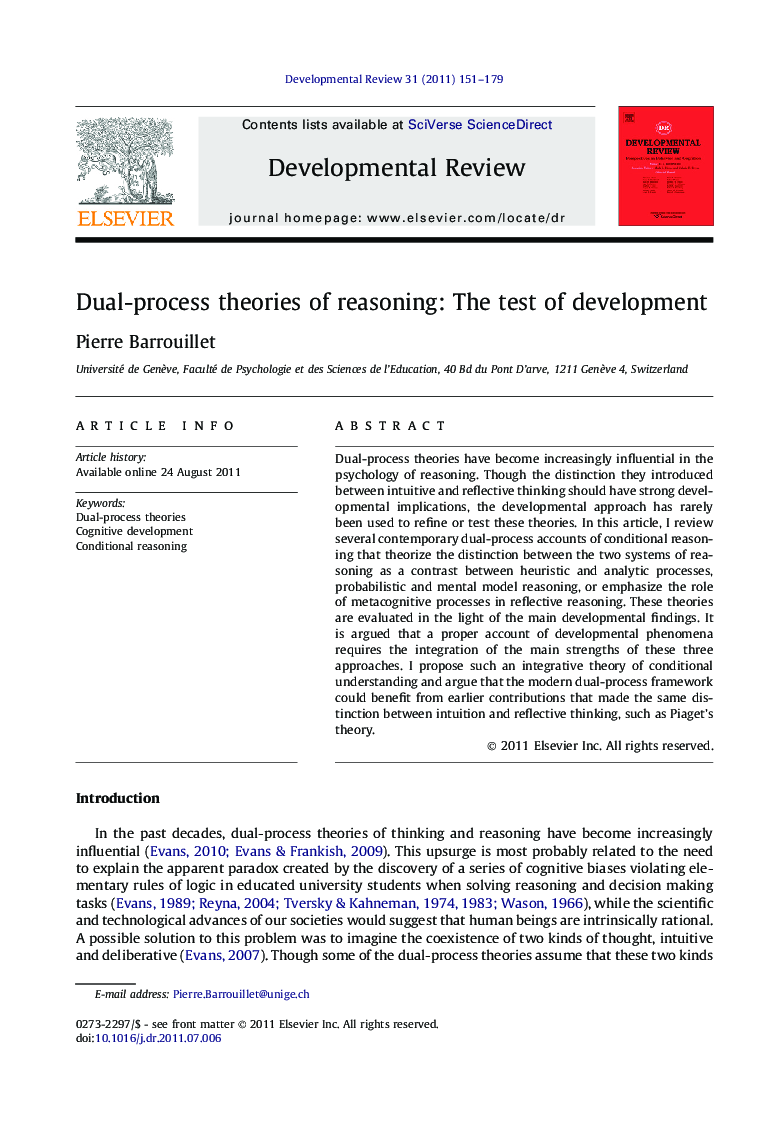| Article ID | Journal | Published Year | Pages | File Type |
|---|---|---|---|---|
| 353568 | Developmental Review | 2011 | 29 Pages |
Dual-process theories have become increasingly influential in the psychology of reasoning. Though the distinction they introduced between intuitive and reflective thinking should have strong developmental implications, the developmental approach has rarely been used to refine or test these theories. In this article, I review several contemporary dual-process accounts of conditional reasoning that theorize the distinction between the two systems of reasoning as a contrast between heuristic and analytic processes, probabilistic and mental model reasoning, or emphasize the role of metacognitive processes in reflective reasoning. These theories are evaluated in the light of the main developmental findings. It is argued that a proper account of developmental phenomena requires the integration of the main strengths of these three approaches. I propose such an integrative theory of conditional understanding and argue that the modern dual-process framework could benefit from earlier contributions that made the same distinction between intuition and reflective thinking, such as Piaget’s theory.
► I review recent developmental data concerning conditional reasoning. ► I assess the capacity of several dual-process theories to account for these findings. ► None of them proves totally satisfactory. ► I present a dual-process account integrating mental models and suppositional theories. ► The dual-process approach is confronted with Piaget’s account of development.
